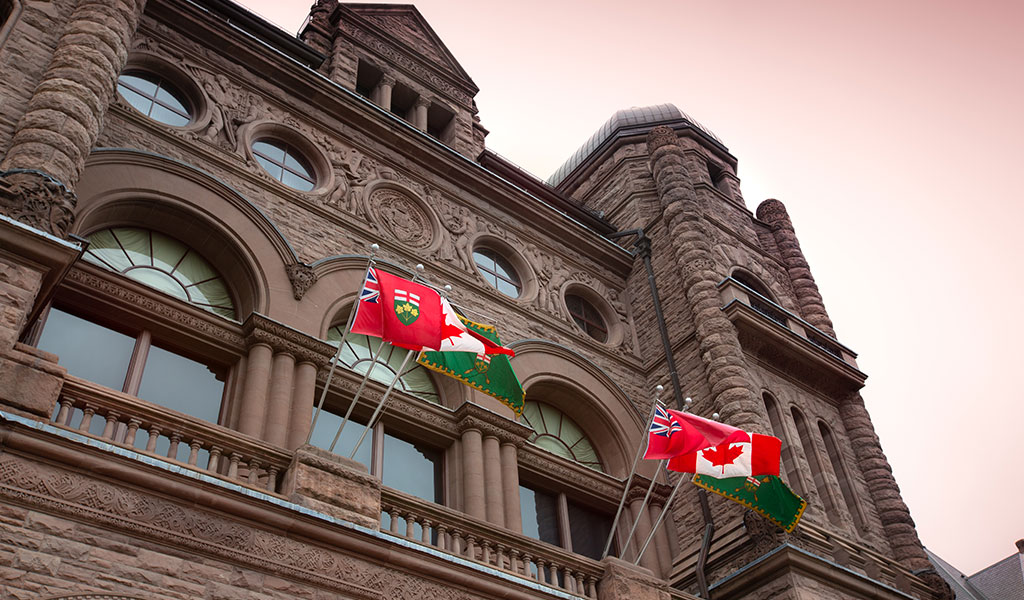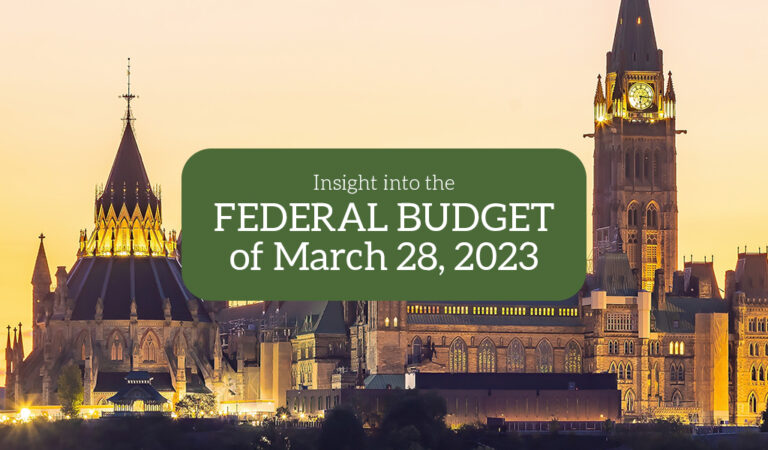Similar to last year’s budget, not much came out of the Ontario PC government’s budget on November 5, 2020. With the focus less directed on tax measures in this budget and an overarching theme encompassing the COVID-19 pandemic prominent, there is promise on the horizon of another budget with more bite to it potentially slated for March 2021. Until then, we bring you the highlights:
Ontario Budget Deficit
The deficit for the 2020-2021 fiscal year is projected to be $38.5 billion – this remains unchanged from the deficit forecast reported in August in the 2020-2021 First Quarter Finances report. The government is also forecasting deficits of $33.1 billion in 2021–22 and $28.2 billion in 2022–23. Although the current levels of spending are critical to get through the pandemic, the government believes that this is unsustainable over the long term – this message mirrors the comments made by the federal government.
Personal and Corporate Tax Rates
No changes to personal or corporate/business income tax rates (at least they didn’t go up!).
|
Top combined Ontario and Federal Personal Income Tax Rates | ||
|
2021 Taxable Income |
2021 ON Tax Rates |
Combined Fed/ON Rate |
|
first $45,142 |
5.05% |
20.05% |
|
over $45,142 up to $90,287 |
9.15% |
33.89% |
|
over $90,287 up to $150,000 |
11.16% |
43.41% |
|
over $150,000 up to $220,000 |
12.16% |
51.97% |
|
Over $220,000 |
13.16% |
53.53% |
Note there is an additional 20% surtax on basic Ontario tax between $4,830 and $6,182, and a 56% surtax on basic Ontario tax in excess of $6,182. The surtax is reflected in the combined Fed/ON rates
|
2020 Corporate Income Tax Rates | ||||
|
|
Active Business Income |
Investment | ||
|
|
General |
Small Business |
Business | |
|
Ontario |
11.5% |
3.2% |
$500,000 |
11.5% |
|
Combined Fed/ON |
26.5% |
12.2% |
$500,000 |
50.17% |
Seniors’ Home Safety Tax Credit
A credit designed to help support seniors to live in their homes longer – and worth 25% of up to $10,000 in eligible expenses for a senior’s principal residence (a maximum credit of $2,500) – this credit is refundable and will be received even if no income taxes are payable. Expenses are eligible if they are paid or become payable in 2021, and relate to renovations that improve safety or increase accessibility and functionality at home such as wheelchair ramps, and non-slip flooring.
Reducing the Employer Health Tax
The Ontario budget proposes to make the temporary increase in the EHT exemption permanent – a measure which increased the exemption amount from $490,000 to $1 million. The budget proposes to double the threshold which dictates at what point employers are required to pay instalments toward their EHT liability from $600,000 to $1.2 million. The budget also proposes to move the next scheduled EHT exemption adjustment for inflation from 2024 to January 1, 2029.
Extensions for Ontario Research and Development Tax Credit (ORDTC) reporting deadlines
The Ontario extension will parallel the Federal Scientific Research and Experimental Development (SR&ED) extension. Corporations with tax year-ends from September 13, 2018 to December 31, 2018 would have an additional six months to file an ORDTC claim, and those with tax year-ends from January 1, 2019 to June 29, 2019 would have until December 31, 2020 to file a claim.
Property Tax Reduction for Employers
All high Business Education Tax (BET) rates will be lowered to a rate of 0.88% for both commercial and industrial properties beginning in 2021, which represents a reduction of 30% for many businesses that are currently subject to the highest BET rate of 1.25%. In Ontario, 94% of businesses will benefit from the reduction.
Freezing Beer Tax Rates and Cancelling the Scheduled Wine Tax Increase
The Ontario government has announced in the budget that it is freezing beer tax rates until March 1, 2022 and retroactively canceling the increase in wine basic tax rates which was legislated to occur on June 1, 2020.
Cultural Media Tax Credit Eligibility
Ontario offers several refundable tax credits to help boost production activity and create jobs in the cultural industries. None of these tax credits are new, however, to help corporations keep their eligibility, the Budget proposes to temporarily extend some timelines and amend some requirements for the tax credits:
- Ontario Interactive Digital Media Tax Credit (OIDMTC): The 37-month project deadline is being extended by an extra 24 months. This would apply to products that were not completed before March 15, 2020, and for which eligible labour expenditures were incurred in the 2020 taxation year.
- Ontario Film and Television Tax Credit (OFTTC): The current deadlines for filing an application for a certificate of completion, eligible expenditure deadline before principal photography begins and the agreement to have production show in Ontario from the date of product completion have all been extended from 24 months to 48 months – the new measures apply to expenditures incurred before March 15, 2020.
- Ontario Production Services Tax Credit (OPSTC): A change proposed to temporarily allow certain companies to claim otherwise eligible expenditures incurred in the two taxation years prior to the year in which principal photography begins. This would apply to productions that incurred otherwise eligible expenditures in Ontario in taxation years ending in 2020 and 2021.
- Ontario Book Publishing Tax Credit (OBPTC): Due to the pandemic, a change proposed to temporarily waive the requirement that literary works must be published in a bound edition of a least 500 copies, applicable to the 2020 and 2021 taxation years.
For a full explanation of each cultural media tax credit available, and the related extensions/amendments, please refer to the 2020 Ontario budget.
As always, we are here to help. If you require additional information or have questions regarding how these budget measures might impact you or your business, feel free to reach out to your trusted Welch LLP advisor.
Author (in collaboration with Ottawa Tax Group)
Don Scott, FCPA, FCA
Director of Tax Services, Partner










